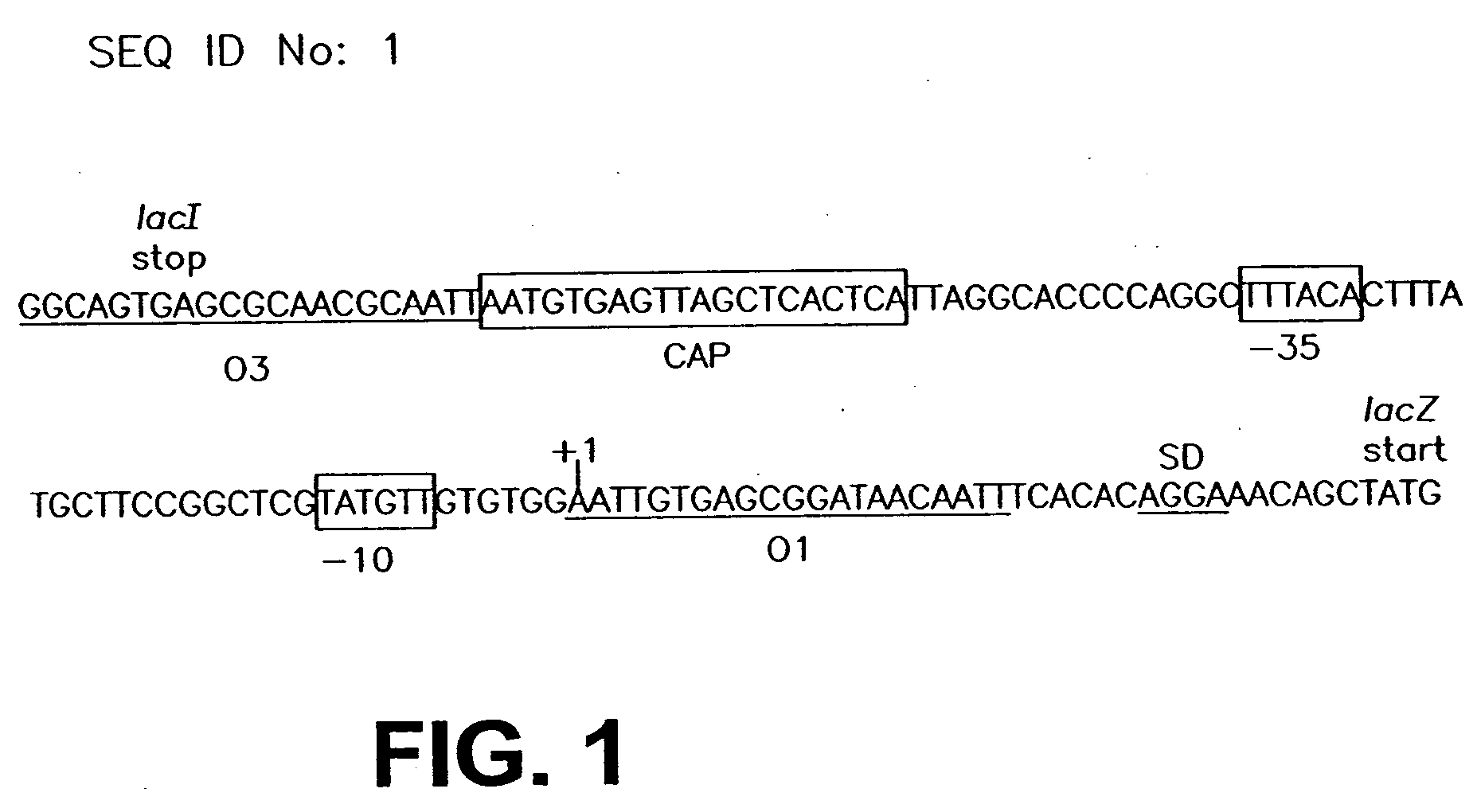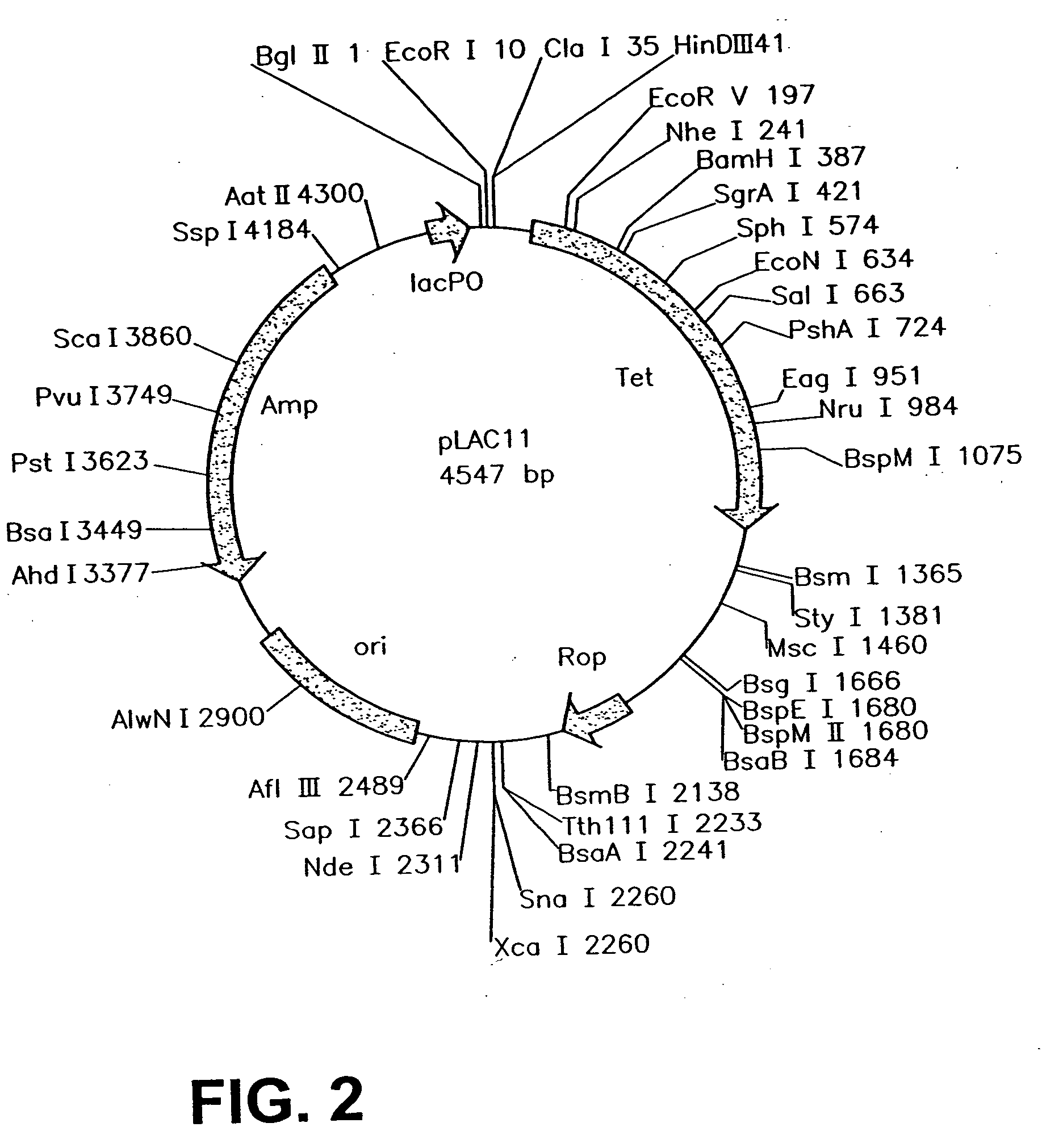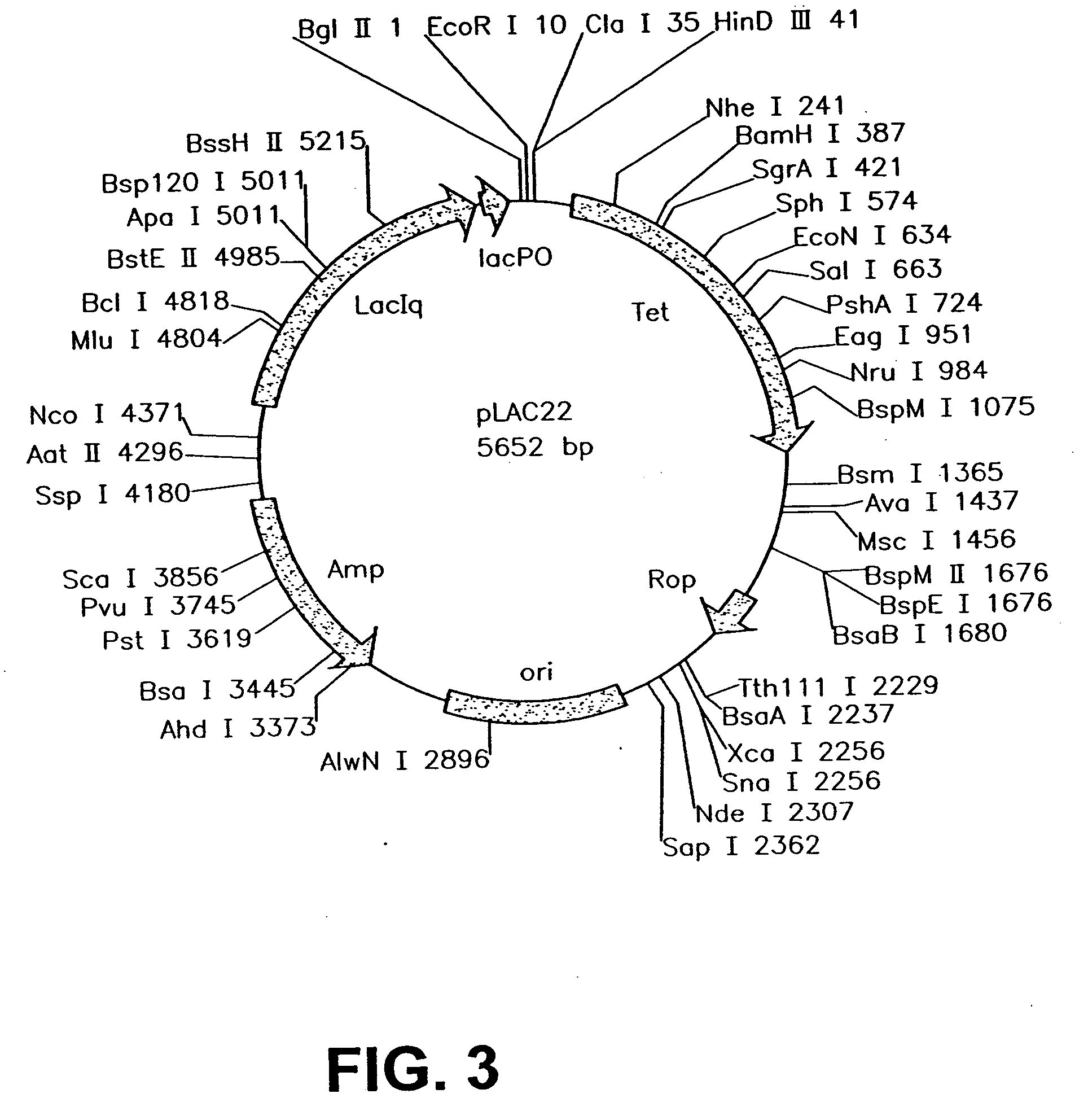Stabilized bioactive peptides and methods of identification, synthesis, and use
a bioactive peptide, stable technology, applied in the direction of peptide/protein ingredients, fusion polypeptides, dna/rna fragmentation, etc., can solve the problem of peptide instability within the biological system of interest, the use of synthetically derived peptides has not yet become a mainstay in the pharmaceutical industry, and the peptide instability remains a problem, so as to slow down the rate of intracellular degradation of peptides
- Summary
- Abstract
- Description
- Claims
- Application Information
AI Technical Summary
Benefits of technology
Problems solved by technology
Method used
Image
Examples
examples
[0098] The present invention is illustrated by the following examples. It is to be understood that the particular examples, materials, amounts, and procedures are to be interpreted broadly in accordance with the scope and spirit of the invention as set forth herein.
example i
Construction and Characterization of a Highly Regulable Expression Vector, pLAC11, and its Multipurpose Derivatives, pLAC22 and pLAC33
[0099] A number of different expression vectors have been developed over the years to facilitate the production of proteins in E. coli and related bacteria. Most of the routinely employed expression vectors rely on lac control in order to overproduce a gene of choice. While these vectors allow for overexpression of the gene product of interest, they are leaky due to changes that have been introduced into the lac control region and gene expression can never be shut off under repressed conditions, as described in more detail below. Numerous researchers have noticed this problem with the more popular expression vectors pKK223-3 (G. Posfai et al. Gene. 50: 63-67 (1986); N. Scrutton et al., Biochem J. 245: 875-880 (1987)), pKK233-2 (P. Beremand et al., Arch Biochem Biophys. 256: 90-100 (1987); K. Ooki et al., Biochemie. 76: 398-403 (1994)), pTrc99A (S. Gh...
example ii
An in vivo Approach for Generating Novel Bioactive Peptides that Inhibit the Growth of E. coli
[0127] A randomized oligonucleotide library containing sequences capable of encoding peptides containing up to 20 amino acids was cloned into pLAC11 (Example I) which allowed the peptides to either be tightly turned off or overproduced in the cytoplasm of E. coli. The randomized library was prepared using a [NNN] codon design instead of either the [NN(G,T)] or [NN(G,C)] codon design used by most fusion-phage technology researchers. [NN(G,T)] or [NN(G,C)] codons have been widely used instead of [NNN] codons to eliminate two out of the three stop codons, thus increasing the amount of full-length peptides that can be synthesized without a stop codon (J. Scott et al., Science 249:386-390 (1990); J. Delvin et al., Science 249:404-406 (1990); S. Cwirla et al., Proc. Nat'l. Acad. Sci. U.S.A. 87:6378-6382 (1990)). However, the [NN(G,T)] and [NN(G,C)] oligonucleotide codon schemes eliminate half of...
PUM
| Property | Measurement | Unit |
|---|---|---|
| Volume | aaaaa | aaaaa |
| Fraction | aaaaa | aaaaa |
| Fraction | aaaaa | aaaaa |
Abstract
Description
Claims
Application Information
 Login to View More
Login to View More - R&D
- Intellectual Property
- Life Sciences
- Materials
- Tech Scout
- Unparalleled Data Quality
- Higher Quality Content
- 60% Fewer Hallucinations
Browse by: Latest US Patents, China's latest patents, Technical Efficacy Thesaurus, Application Domain, Technology Topic, Popular Technical Reports.
© 2025 PatSnap. All rights reserved.Legal|Privacy policy|Modern Slavery Act Transparency Statement|Sitemap|About US| Contact US: help@patsnap.com



